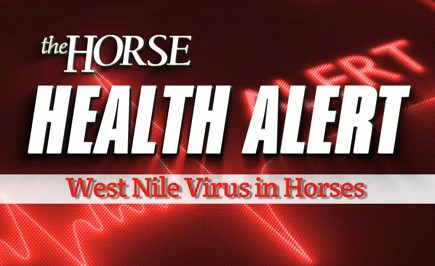Michigan Pony Succumbs to WNV
The mare had not been vaccinated against West Nile virus.
Share
ADVERTISEMENT

The Genesee County mare had not been vaccinated against West Nile virus. | Wikimedia Commons
On Dec. 8, officials at the Michigan Department of Agriculture and Rural Development (MDARD) confirmed a 9-year-old Pony of the Americas mare died after testing positive for West Nile virus (WNV). The pony, which had not been vaccinated against WNV, presented on Nov. 23 with clinical signs that included blindness and circling, and died on Nov. 25.
About West Nile Virus
WNV transmission occurs when infected mosquitoes feed on animals, as well as humans, after having fed on infected birds.

Clinical signs of WNV in horses include:
- Mild anorexia and depression
- Fine and coarse muscle and skin fasciculation;
- Hyperesthesia (hypersensitivity to touch and sound);
- Changes in mentation (mentality), when horses look like they’re daydreaming or “just not with it”;
- Occasional drowsiness;
- Propulsive walking (driving or pushing forward, often without control);
- Spinal signs, including asymmetrical weakness; and
- Asymmetrical or symmetrical ataxia.
West Nile virus has no cure; however, some horses can recover with supportive care. Equine mortality rates can reach 30-40%. The American Association of Equine Practitioners includes WNV as one of the core diseases all horses should be vaccinated against at least annually.
Share
Written by:
Edited Press Release
Related Articles
Stay on top of the most recent Horse Health news with















